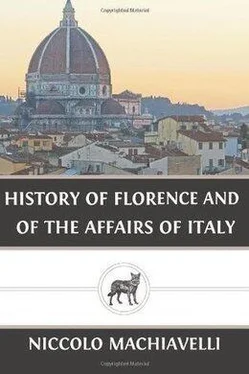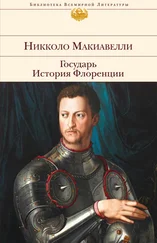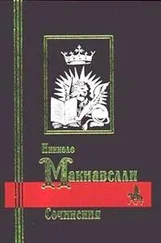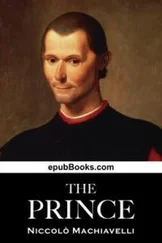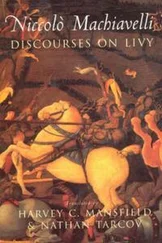Attila having left Italy, Valentinian, emperor of the west, thought of restoring the country; and, that he might be more ready to defend it against the barbarians, abandoned Rome, and removed the seat of government to Ravenna. The misfortunes which befell the western empire caused the emperor, who resided at Constantinople, on many occasions to give up the possession of it to others, as a charge full of danger and expense; and sometimes, without his permission, the Romans, seeing themselves so abandoned, created an emperor for their defense, or suffered some one to usurp the dominion. This occurred at the period of which we now speak, when Maximus, a Roman, after the death of Valentinian, seized the government, and compelled Eudocia, widow of the late emperor, to take him for her husband; but she, being of imperial blood, scorned the connection of a private citizen; and being anxious to avenge herself for the insult, secretly persuaded Genseric, king of the Vandals and master of Africa to come to Italy, representing to him the advantage he would derive from the undertaking, and the facility with which it might be accomplished. Tempted by the hope of booty, he came immediately, and finding Rome abandoned, plundered the city during fourteen days. He also ravaged many other places in Italy, and then, loaded with wealth, withdrew to Africa. The Romans, having returned to their city, and Maximus being dead, elected Avitus, a Roman, as his successor. After this, several important events occurred both in Italy and in the countries beyond; and after the deaths of many emperors the empire of Constantinople devolved upon Zeno, and that of Rome upon Orestes and Augustulus his son, who obtained the sovereignty by fraud. While they were designing to hold by force what they had obtained by treachery, the Eruli and the Turingi, who, after the death of Attila, as before remarked, had established themselves upon the farther bank of the Danube, united in a league and invaded Italy under Odoacer their general. Into the districts which they left unoccupied, the Longobardi or Lombards, also a northern people, entered, led by Godogo their king. Odoacer conquered and slew Orestes near Pavia, but Augustulus escaped. After this victory, that Rome might, with her change of power, also change her title, Odoacer, instead of using the imperial name, caused himself to be declared king of Rome. He was the first of those leaders who at this period overran the world and thought of settling in Italy; for the others, either from fear that they should not be able to hold the country, knowing that it might easily be relieved by the eastern emperors, or from some unknown cause, after plundering her, sought other countries wherein to establish themselves.
State of the Roman empire under Zeno—Theodoric king of the Ostrogoths—Character of Theodoric—Changes in the Roman empire—New languages—New names—Theodoric dies—Belisarius in Italy—Totila takes Rome—Narses destroys the Goths—New form of Government in Italy—Narses invites the Lombards into Italy—The Lombards change the form of government.
At this time the ancient Roman empire was governed by the following princes: Zeno, reigning in Constantinople, commanded the whole of the eastern empire; the Ostrogoths ruled Mesia and Pannonia; the Visigoths, Suavi, and Alans, held Gascony and Spain; the Vandals, Africa; the Franks and Burgundians, France; and the Eruli and Turingi, Italy. The kingdom of the Ostrogoths had descended to Theodoric, nephew of Velamir, who, being on terms of friendship with Zeno the eastern emperor, wrote to him that his Ostrogoths thought it an injustice that they, being superior in valor to the people thereabout, should be inferior to them in dominion, and that it was impossible for him to restrain them within the limits of Pannonia. So, seeing himself under the necessity of allowing them to take arms and go in search of new abodes, he wished first to acquaint Zeno with it, in order that he might provide for them, by granting some country in which they might establish themselves, by his good favor with greater propriety and convenience. Zeno, partly from fear and partly from a desire to drive Odoacer out of Italy, gave Theodoric permission to lead his people against him, and take possession of the country. Leaving his friends the Zepidi in Pannonia, Theodoric marched into Italy, slew Odoacer and his son, and, moved by the same reasons which had induced Valentinian to do so, established his court at Ravenna, and like Odoacer took the title of king of Italy.
Theodoric possessed great talents both for war and peace; in the former he was always conqueror, and in the latter he conferred very great benefits upon the cities and people under him. He distributed the Ostrogoths over the country, each district under its leader, that he might more conveniently command them in war, and govern them in peace. He enlarged Ravenna, restored Rome, and, with the exception of military discipline, conferred upon the Romans every honor. He kept within their proper bounds, wholly by the influence of his character, all the barbarian kings who occupied the empire; he built towns and fortresses between the point of the Adriatic and the Alps, in order, with the greater facility, to impede the passage of any new hordes of barbarians who might design to assail Italy; and if, toward the latter end of his life, so many virtues had not been sullied by acts of cruelty, caused by various jealousies of his people, such as the death of Symmachus and Boethius, men of great holiness, every point of his character would have deserved the highest praise. By his virtue and goodness, not only Rome and Italy, but every part of the western empire, freed from the continual troubles which they had suffered from the frequent influx of barbarians, acquired new vigor, and began to live in an orderly and civilized manner. For surely if any times were truly miserable for Italy and the provinces overrun by the barbarians, they were those which occurred from Arcadius and Honorius to Theodoric. If we only consider the evils which arise to a republic or a kingdom by a change of prince or of government; not by foreign interference, but by civil discord (in which we may see how even slight variations suffice to ruin the most powerful kingdoms or states), we may then easily imagine how much Italy and the other Roman provinces suffered, when they not only changed their forms of government and their princes, but also their laws, customs, modes of living, religion, language, and name. Any one of such changes, by itself, without being united with others, might, with thinking of it, to say nothing of the seeing and suffering, infuse terror into the strongest minds.
From these causes proceeded the ruin as well as the origin and extension of many cities. Among those which were ruined were Aquileia, Luni, Chiusi, Popolonia, Fiesole, and many others. The new cities were Venice, Sienna, Ferrara, Aquila, with many towns and castles which for brevity we omit. Those which became extended were Florence, Genoa, Pisa, Milan, Naples, and Bologna; to all of which may be added, the ruin and restoration of Rome, and of many other cities not previously mentioned.
From this devastation and new population arose new languages, as we see in the different dialects of France, Spain and Italy; which, partaking of the native idiom of the new people and of the old Roman, formed a new manner of discourse. Besides, not only were the names of provinces changed, but also of lakes, rivers, seas, and men; for France, Spain, and Italy are full of fresh names, wholly different from the ancient; as, omitting many others, we see that the Po, the Garda, the Archipelago, are names quite different from those which the ancients used; while instead of Cæsar and Pompey we have Peter, Matthew, John, etc.
Among so many variations, that of religion was not of little importance; for, while combating the customs of the ancient faith with the miracles of the new, very serious troubles and discords were created among men. And if the Christians had been united in one faith, fewer disorders would have followed; but the contentions among themselves, of the churches of Rome, Greece, and Ravenna, joined to those of the heretic sects with the Catholics, served in many ways to render the world miserable. Africa is a proof of this; having suffered more horrors from the Arian sect, whose doctrines were believed by the Vandals, than from any avarice or natural cruelty of the people themselves. Living amid so many persecutions, the countenances of men bore witness of the terrible impressions upon their minds; for besides the evils they suffered from the disordered state of the world, they scarcely could have recourse to the help of God, in whom the unhappy hope for relief; for the greater part of them, being uncertain what divinity they ought to address, died miserably, without help and without hope.
Читать дальше
